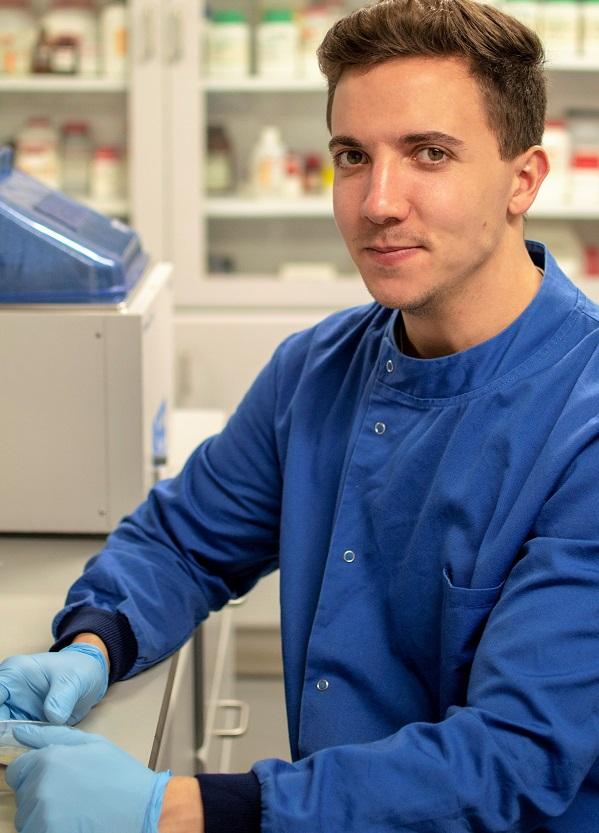
Submitted by Administrator on Wed, 14/11/2018 - 13:52
14 Nov 2018 - Daniel Buhl has been selected for the first ever national PhD Training Programme in Antimicrobial Resistance which was launched by the Medical Research Foundation this autumn.
Daniel Buhl has been selected for the first ever national PhD Training Programme in Antimicrobial Resistance which was launched by the Medical Research Foundation this autumn. The innovative research conducted by this cohort of 18 students from 16 UK universities will contribute to the ambitious aims of the UKRI-funded cross-council research consortia which is tackling AMR on a global scale.
Antibiotics transformed healthcare in the 20th century and are still considered one of greatest medical achievements of the era. Today, we rely on antibiotics to treat life-threatening bacterial infections and to prevent infection after surgery. But antibiotic overuse and misuse has led to antibiotics becoming increasingly ineffective and antimicrobial resistance, specifically antibiotic resistance, now poses a global threat to human life.
Working alongside the Medical Research Council (MRC), the Foundation spotted a gap in funding for PhD studentships in antimicrobial resistance research – right now there are few emerging researchers trained in the multidisciplinary approach required to tackle the antimicrobial resistance problem. This new PhD Training Programme is designed to help build a strong, active network of early career researchers by bringing together those who study microbiology, genetics and medicine with social scientists, vets, dentists, ecologists, environmental biologists, anthropologists, chemists and biomedical engineers.
Professor Dame Sally Davies, Chief Medical Officer for England who is a leading advocate on the need to address antimicrobial resistance said: “I am thrilled that the Medical Research Foundation is building on the successful work of the UK Research Councils by investing £2.85m to create the UK’s only national PhD Training Programme in Antimicrobial Resistance. Training the next generation of researchers in this area is vital and we must equip scientists with the multi-disciplinary skills needed to conduct world leading research into this global threat.”
Dr Jonathan Pearce, MRC Head of Immunity and Infections, added: “Over the past five years, in partnership with the other UKRI Councils, we’ve made huge efforts to better understand the threat of AMR and find solutions – together investing £44 million in 78 UK projects and £41 million in projects worldwide. A key aspect of recent investment has been interdisciplinarity – bringing researchers with different expertise together to look at complex problems from a different angle. The Medical Research Foundation’s AMR PhD programme is exactly the type of initiative required to develop the future cadre of interdisciplinary researchers that we need.”
Daniel’s research will use a novel mass spectrometry technique in order to rapidly detect bacterial infections directly from clinical samples and identify different species of bacteria and their antibiotic susceptibility. Such research is crucial because the faster an infection and its potential resistance can be identified, the quicker a patient can receive appropriate, personalised treatment, improving their chances of survival.
Commenting on his motivation to join the scheme, Daniel said: “Every day antimicrobial resistance threatens the lives of many people and with my research I hope to contribute to the elimination of this major risk factor and improve healthcare. This programme combines the expertise from several leading institutions and researchers in antimicrobial resistance research with novel and exciting projects, providing starting researchers like me with all the tools needed to thrive in our future career.”
The Foundation will also reach a further 150 UK PhD students training in AMR-related research through training and network-building activities such as on-line resources, summer residential training weeks, annual AMR conferences and tailored meetings responsive to developments and opportunities relevant to the AMR field.

